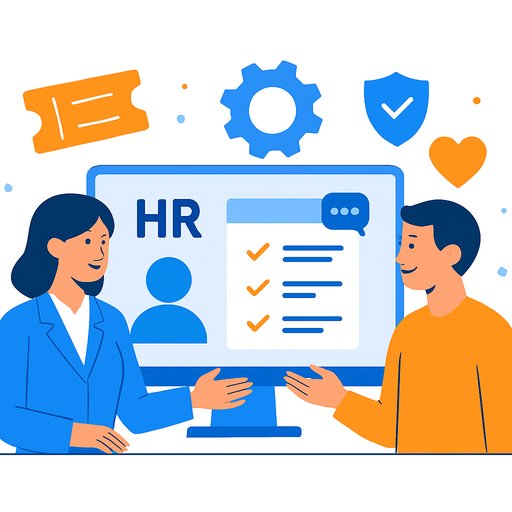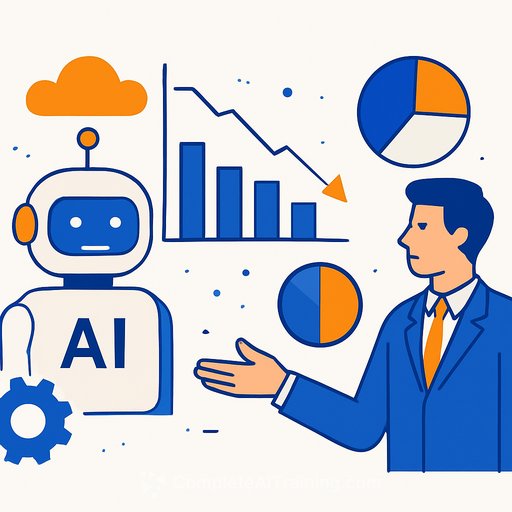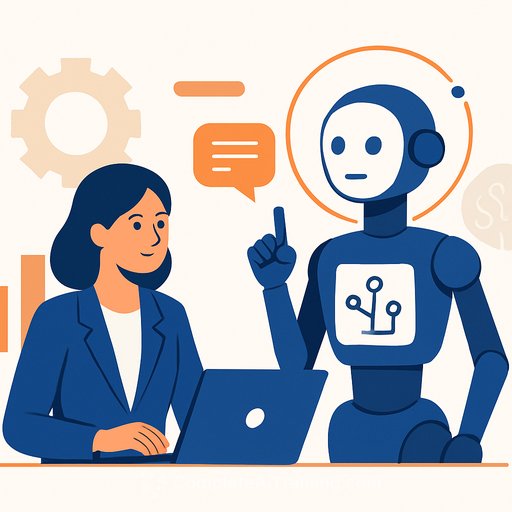The 2025 Midyear HR Checkup: Layoffs, DEI Adjustments, and the Uncertain AI Future
HR teams are facing a tough environment as 2025 unfolds. Organizations are conducting layoffs at an unprecedented rate, often repeatedly throughout the year. At the same time, investments in employee experience and development are being scaled back, creating challenges for HR professionals tasked with maintaining a healthy workplace culture.
One expert described the situation as “spooky,” highlighting that while companies focus on cost-cutting through attrition, the divestment from people initiatives threatens both employee well-being and customer experience.
HR Teams Under Strain
Data from a 2025 workplace report shows that 62% of HR professionals are working beyond their capacity, with 57% reporting understaffed departments. The pressure to manage layoffs, adopt new technologies like AI, and adjust diversity, equity, and inclusion (DEI) efforts has left HR teams stretched thin.
AI Adoption Faces Real-World Challenges
AI tools have become common in many workplaces; over two-thirds of companies use AI for work-related purposes. However, the practical benefits of AI remain limited. Workers often lack the necessary skills to utilize AI effectively, which means training demands rise — a challenge many organizations are not prepared to meet.
Executives expect HR to identify valuable AI use cases and support employee upskilling, but this creates a difficult position. AI projects rarely deliver significant productivity gains, and many pilot programs show no measurable financial impact.
- 95% of enterprise generative AI pilots show no clear profit-or-loss impact (MIT report)
- 40% of agentic AI projects may be cancelled by 2027 due to costs and unclear value (Gartner)
Rather than replacing whole HR departments with AI, organizations should consider using AI to upgrade roles by automating repetitive tasks while keeping human judgment at the core. Some companies, like McDonald’s, have already rolled back overly ambitious AI implementations after seeing limitations firsthand.
HR must work closely with IT and team leads to set realistic goals for AI, align expectations, and choose technologies that truly add value.
DEI Programs Adapt Amid Political and Legal Pressure
Since the reelection of President Trump, who opposes many DEI initiatives, about 20% of employers have cut back on these programs. Federal scrutiny has increased, with investigations threatening certain diversity hiring practices and employee resource groups.
Despite this, DEI practitioners continue their efforts by focusing on clear business goals like talent development and upward mobility, rather than purely symbolic efforts. For example, Feast & Fettle centers its DEI work on removing barriers for employees from diverse and underserved backgrounds, linking equity directly to workforce advancement.
This approach avoids backlash by grounding DEI in tangible business outcomes and emphasizing inclusion of varied lived experiences beyond race or gender.
Engaging openly with employees who resist DEI initiatives can help uncover underlying concerns and foster more productive conversations. Employers are also shifting away from problematic metrics like quotas toward more nuanced methods, such as mentorship programs based on individual career challenges.
The Job Market Isn’t Simply Employer-Friendly
While layoffs have increased and some workers feel insecure, the labor market remains complex. Workers’ expectations for benefits, flexibility, and workplace culture have shifted, and employers are still adjusting.
AI-driven automation contributes to layoffs but also raises questions about the employee-employer relationship. HR must critically assess AI deployments and advocate for employee needs rather than blindly following top-down initiatives.
Employee demands for flexible work arrangements remain strong, and poorly executed return-to-office (RTO) policies risk alienating talent. Many workers can tell when RTO mandates are more about convenience than genuine collaboration.
Flexibility and Respect Are Key to Retaining Talent
Employers who provide meaningful flexibility and listen to employee needs will be better positioned to compete for talent—especially if market conditions shift again. Ignoring these factors can lead to resentment and turnover.
HR professionals should lead with empathy and push for policies that support diverse employee circumstances, recognizing that inflexibility can reduce workforce effectiveness and harm customer experience.
In the current climate, balancing cost-cutting pressures, DEI efforts, AI adoption, and employee expectations is challenging but essential for sustaining organizational health and growth.
For HR leaders interested in practical AI training to support these efforts, exploring targeted courses can provide valuable skills to manage AI adoption effectively, such as those offered at Complete AI Training.
Your membership also unlocks:






